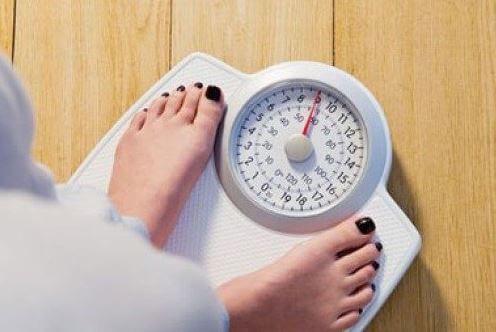Lies About Carbohydrates

There is so much contradictory information surrounding which foods you should eliminate from your diet in order to eat better. Carbohydrates are often the most debated. This is why we’ll take this opportunity to discuss the lies about carbohydrates that you shouldn’t believe.
Truly, many people are confused and it’s possible they misunderstand the role that carbohydrates play in our bodies. Carbohydrates are nutrients that provide a large amount of energy that allow us to exercise effectively. Besides, they are our main energy source.
In any case, we don’t recommend that anyone undergoes long periods of time without consuming carbohydrates. On the contrary, it’s necessary to monitor the carbohydrates you consume because not all carbohydrates are the same.
Complex carbohydrates, such as cereals, oatmeal or beans are the best option. They provide a constant source of energy without raising blood sugar levels.

You must take into consideration that the number of carbohydrates you consume must be determined by the goals you wish to reach. Besides, you must know that if your goal is to lose weight, carbohydrates must still be included in your diet in order to feed your body.
Lies about carbohydrates
1.-All carbohydrates are the same
Firstly, there are two types of carbohydrates: simple and complex. Simple carbohydrates are found mostly in fruits and vegetables, but also in unrefined grains, pies, and other baked goods. On the other hand, complex carbohydrates are found in whole bread, and in pasta, as well as in legumes and vegetables rich in starch. Carbohydrates are necessary for your body to produce energy.
2.-Lies about carbohydrates: they provoke bloating
Suggesting that carbohydrates cause symptoms of bloating are huge generalizations since the effect of any food on any person will vary according to each individual. However, each type of macronutrient cannot cause a common symptom. When we speak of gases or bloating, we should refer to a specific food or type of carbohydrate, such as fiber, artificial sweeteners or lactose, which may be to blame.
3.-Carbohydrates make you tired
The sensation of fatigue depends on the type of carbohydrate that you have consumed. Refined carbohydrates loaded with sugar, such as white pasta, raise your blood pressure, which can make you feel tired. If this is your case, we advise that you eat whole wheat pasta to avoid feeling sleepy or tired.

4.- More lies about carbohydrates, they raise your blood sugar
We have to repeat that not all carbohydrates are the same. Complex carbohydrates, such as multigrain bread, may help stabilize your blood sugar level and provide energy. On the other hand, refined carbohydrates found in white bread and most junk food will raise your blood sugar levels.
5.-Carbohydrates make you fat
The fact that fruits, vegetables, beans, legumes, and nuts are rich in carbohydrates proves that this is a broad statement which is fundamentally false.
In fact, carbohydrates have different functions in your body and provide nutrients that can be used to create a diet rich in vitamins, minerals, and energy. What makes us fat is a metabolism and energy balance that’s out of control, combining to store excessive nutrient intake.

6.- Don’t eat carbohydrates before your workout
More lies about carbohydrates! You will not feel heavy before a workout if you eat carbohydrates. In an athlete’s diet, carbohydrates cannot be missing. It’s about the synchronization and type of grain that we should consume in these cases. Carbohydrates are necessary to provide immediate energy and improve performance. Obviously, they need to be controlled and taken within a set time before training.
Finally, do not forget that carbohydrates must be consumed according to your activity level and your goals. They must be seen as fuel. When consumed correctly they can help you build muscle, lose weight, boost your metabolism and energy level.
There is so much contradictory information surrounding which foods you should eliminate from your diet in order to eat better. Carbohydrates are often the most debated. This is why we’ll take this opportunity to discuss the lies about carbohydrates that you shouldn’t believe.
Truly, many people are confused and it’s possible they misunderstand the role that carbohydrates play in our bodies. Carbohydrates are nutrients that provide a large amount of energy that allow us to exercise effectively. Besides, they are our main energy source.
In any case, we don’t recommend that anyone undergoes long periods of time without consuming carbohydrates. On the contrary, it’s necessary to monitor the carbohydrates you consume because not all carbohydrates are the same.
Complex carbohydrates, such as cereals, oatmeal or beans are the best option. They provide a constant source of energy without raising blood sugar levels.

You must take into consideration that the number of carbohydrates you consume must be determined by the goals you wish to reach. Besides, you must know that if your goal is to lose weight, carbohydrates must still be included in your diet in order to feed your body.
Lies about carbohydrates
1.-All carbohydrates are the same
Firstly, there are two types of carbohydrates: simple and complex. Simple carbohydrates are found mostly in fruits and vegetables, but also in unrefined grains, pies, and other baked goods. On the other hand, complex carbohydrates are found in whole bread, and in pasta, as well as in legumes and vegetables rich in starch. Carbohydrates are necessary for your body to produce energy.
2.-Lies about carbohydrates: they provoke bloating
Suggesting that carbohydrates cause symptoms of bloating are huge generalizations since the effect of any food on any person will vary according to each individual. However, each type of macronutrient cannot cause a common symptom. When we speak of gases or bloating, we should refer to a specific food or type of carbohydrate, such as fiber, artificial sweeteners or lactose, which may be to blame.
3.-Carbohydrates make you tired
The sensation of fatigue depends on the type of carbohydrate that you have consumed. Refined carbohydrates loaded with sugar, such as white pasta, raise your blood pressure, which can make you feel tired. If this is your case, we advise that you eat whole wheat pasta to avoid feeling sleepy or tired.

4.- More lies about carbohydrates, they raise your blood sugar
We have to repeat that not all carbohydrates are the same. Complex carbohydrates, such as multigrain bread, may help stabilize your blood sugar level and provide energy. On the other hand, refined carbohydrates found in white bread and most junk food will raise your blood sugar levels.
5.-Carbohydrates make you fat
The fact that fruits, vegetables, beans, legumes, and nuts are rich in carbohydrates proves that this is a broad statement which is fundamentally false.
In fact, carbohydrates have different functions in your body and provide nutrients that can be used to create a diet rich in vitamins, minerals, and energy. What makes us fat is a metabolism and energy balance that’s out of control, combining to store excessive nutrient intake.

6.- Don’t eat carbohydrates before your workout
More lies about carbohydrates! You will not feel heavy before a workout if you eat carbohydrates. In an athlete’s diet, carbohydrates cannot be missing. It’s about the synchronization and type of grain that we should consume in these cases. Carbohydrates are necessary to provide immediate energy and improve performance. Obviously, they need to be controlled and taken within a set time before training.
Finally, do not forget that carbohydrates must be consumed according to your activity level and your goals. They must be seen as fuel. When consumed correctly they can help you build muscle, lose weight, boost your metabolism and energy level.
All cited sources were thoroughly reviewed by our team to ensure their quality, reliability, currency, and validity. The bibliography of this article was considered reliable and of academic or scientific accuracy.
Ruan, Y., & Fincher, G. B. (2016). Carbohydrates. In Encyclopedia of Applied Plant Sciences (Vol. 2, pp. 67–71). Elsevier Inc. https://doi.org/10.1016/B978-0-12-394807-6.00155-6
This text is provided for informational purposes only and does not replace consultation with a professional. If in doubt, consult your specialist.








